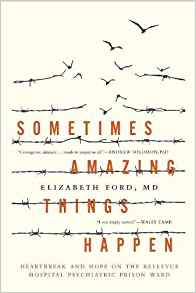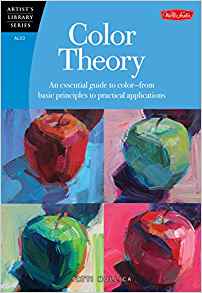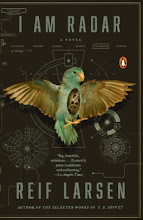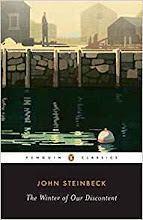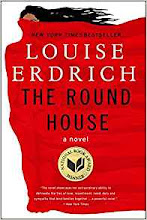This afternoon I stood in the aisle at Barnes & Noble, next to the New Fiction table, despairing. The world was changing and in a direction I didn't like. There was nothing to be done. It was progress. This is how it would be, and people would adjust, or become dinosaurs.
I had just discovered that the CD section had moved from the back wall of the store to a smaller section along the side. Further, DVDs and Blu-Ray discs now took up half the space, with CDs squeezed into the other half. Genres of music were much less obviously marked, and the racks of "NEW RELEASES" had disappeared. CDs are going the way of the cassette tape. Most music is now digital and virtual and intangible and is purchased invisibly through a keyboard.
I had a brief nostalgic moment remembering the excitement I used to feel walking through the vast inventory of CDs at Borders, wondering what new music I might discover. Would it be an older release that I somehow missed of a favorite artist? Or would I, on a whim, put on headphones at a "listening station" (what a fantastic service!) and discover someone new? I spent a lot of time at Tower Records before it died at the hands of iTunes, making such discoveries of world music artists.
Sometimes I even went to Borders on the day a long-awaited CD was to be released and asked for it since it was not yet on the shelves. Now, that was exciting: when a staff person disappeared into the back room and brought it out to me, fresh from the box, not even priced yet!
Those days are long gone. CDs now sit in a small, sad part of the store, still there only to pacify those of us who have yet to make the jump to the newest medium and trash our jewel cases and cumbersome CD racks. (Who keeps their music in furniture anymore?) They will soon disappear unnoticed as DVDs, in their only slightly larger packaging, take over the space completely.
On my way out of the Barnes & Noble, I stopped for a moment at the large display, sitting front and center, showcasing B&N's electronic reader, the Nook. It's B&N's answer to the Amazon Kindle and the Sony Reader. I stopped to touch it. It's cold metal parts struck me as exactly diametrical to the warmth I supposed its name was meant to evoke. It made me sad. It did not make me want to find some cozy nook and read a book on it.
That is when I found myself standing in the store aisle, full of anti-electronic angst. This was the "high tech, low touch" dichotomy predicted and decried back in the '70's by those who studied the future. Advances in technology, they said, would result in less touch and a distancing from the things which make us human.
When the tide of digital photography broke over the beach of picture-taking, I transitioned from film consciously and with minimal tragedy; the issue was forced when my partner gave me a digital camera for my birthday, and I was quickly running out of storage space for my many bulky photo albums. I also felt relieved that I would no longer have to spend a lot of time mounting developed photos and handwriting captions for them. Nor would I have to order reprints and mail them to people any longer - I could just email them! And since taking pictures was all electronic now, I stopped hearing ka-ching! every time I hit the shutter and could take and erase as many photos as I wanted - and the ones I kept I could edit after downloading them to my computer.
So while I was reluctant to give up the tactile experience of pulling out an album and flipping through the pages or bringing the album out to the living room to share with a visitor, all the practical advantages of digital photography more than made up for it.
But with music it's harder. I've always loved the little booklets that come with CDs. I enjoy the art, photos, lyrics, and liner notes. Reading the artist's thoughts and thank-you's adds to my emotional experience of the music. (Granted, I now need a magnifying glass to read the tiny print.) Before CDs, when I was growing up, I used to love slitting the plastic wrap of an LP, sliding the record out of the cardboard cover, and seeing what was on the paper sleeve. I would turn the record on and lie on my stomach facing the speakers, reading the album cover and sleeve. (We're skipping mention of that deplorable phase of the cassette tape and of the 8-track, which I never experienced.)
Yes, space is an issue, even though CDs greatly reduced the storage necessary for vinyl. But downloading music creates its own storage issues. And I don't get art or lyrics with it. Nevertheless, I acknowledge that it's only a matter of time until CDs are no longer sold. It's hard to deny after seeing Virgin and Tower Records close and watching the ever-shrinking CD sections at B&N and Borders.
But considering the demise of the printed book is not something I'm ready to do. When it's a cold and rainy Saturday in November, I don't want to curl up in a big chair under an afghan with a mug of hot chocolate and - power up my Kindle. At the end of a long day, when I want to escape into a story world before going to sleep, I don't want to climb under the covers and settle in - with my Nook. I want my book, with its cloth cover and deckle-edge pages, or my paperback with its somewhat worn cover, evidencing the many hours I've already spent with it, complete with the notes I've written in the margins, the underlined passages which struck me in a special way.
And when I go to a reading and stand in line to meet the author, and when I finally reach the table where they sit, pen poised and ready to ask my name, where exactly on my downloaded book should they write the inscription?
When we are finished with printed books, their lives do not end. Many people bring them in to work and contribute them to a lending library or book swap. Some people release them "into the wild," leaving them in airport waiting areas, cafes, or public parks. Electronic books are - deleted.
Again, storage is an issue, admittedly. But those of us who love books - beyond simply loving to read - don't mind. We just use them to decorate. Even if we can't display every book we own, we can't part with a special book that has made us cry or has moved us or made us think in a way we wouldn't have found on our own. And we've spent so much time with it, how could we just get rid of it?
The writing is probably on the wall with newspapers shutting down right and left and surviving rags losing more and more weight, resembling skinny small town papers rather than the hefty, two-pound parcels that used to take us a couple days to get through. People already enjoy listening to the audio versions of books. And you can't beat the convenience of purchasing and consuming e-books wherever you are.
Nevertheless, I am heartened when I consider that books don't seem to be going away. Not yet, anyway. The way that books are sold has changed drastically, but books themselves don't seem to be less available. Many people, after acknowledging that bookstores (at least brick-and-mortar ones) are probably on their way out, assert that books are going to stick around for a while.
I myself will be doing my share to ensure that is true.
Saturday, July 3, 2010
Subscribe to:
Posts (Atom)


